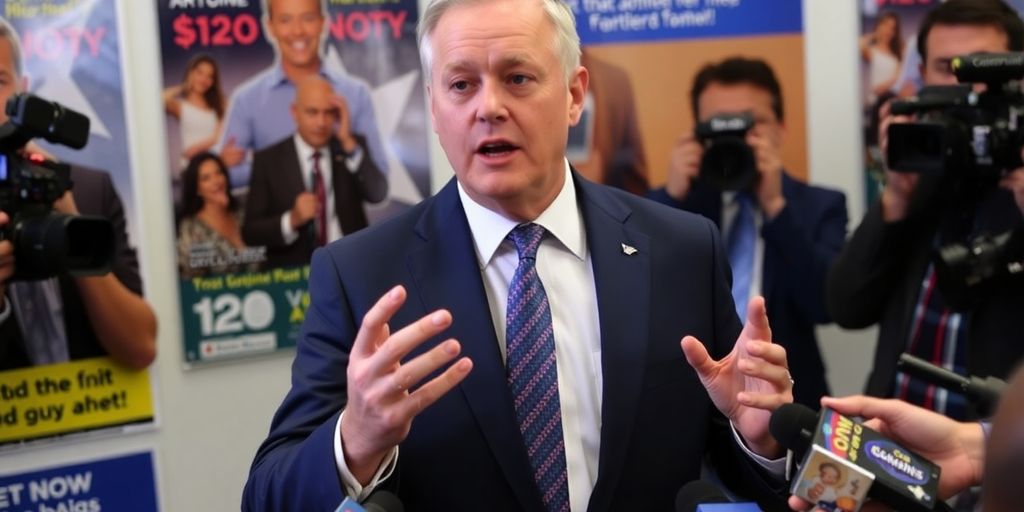Australia’s government has recently decided to shelve proposed reforms aimed at regulating gambling advertisements, a move that has drawn significant criticism from various sectors. This decision comes as the government prepares for a potential early election, raising concerns about the influence of corporate interests over public health initiatives.
Key Takeaways
- The Australian government has postponed gambling advertising reforms amid election pressures.
- Proposed legislation aimed to ban gambling ads on television and other media.
- Critics argue the decision prioritizes corporate interests over public health.
- Public support for stricter gambling ad regulations remains high.
Background on Proposed Reforms
In recent years, there has been growing concern regarding the impact of gambling advertisements, particularly on young Australians. A parliamentary inquiry led by the late MP Peta Murphy recommended a comprehensive ban on all forms of gambling advertising, citing the normalization of gambling among children and vulnerable populations.
The initial proposal aimed to eliminate gambling ads from television, radio, newspapers, and online platforms within three years. However, as the government faced mounting pressure from media and sports industries, the proposed ban was replaced with a more lenient approach, limiting ads to two per hour on television until 10 PM and banning them during live sporting events.
Industry Influence and Economic Concerns
The decision to delay the reforms has been attributed to significant lobbying from the media and sports sectors, which argue that gambling revenue is crucial for funding broadcasts and grassroots initiatives. Major sports leagues like the AFL and NRL have expressed concerns that a ban on gambling ads could jeopardize their financial stability, leading to increased ticket prices and reduced funding for community programs.
- Economic Arguments:
- Gambling advertising is a vital revenue stream for broadcasters and sports leagues.
- Loss of this income could force organizations to seek alternative funding or cut back on operations.
Public and Political Reaction
The government’s reversal has sparked outrage among advocacy groups and political opponents. Critics argue that the decision reflects a lack of political will to address the harms associated with gambling advertising. Carol Bennett, CEO of the Alliance for Gambling Reform, described the move as a betrayal of communities affected by gambling-related issues.
Public sentiment appears to favor stricter regulations, with recent polls indicating that approximately 70% of Australians support a ban on gambling ads on television. This disconnect between public opinion and government action may have electoral implications as the Labor Party prepares for a potential election.
Future Implications
The shelving of gambling advertising reforms raises questions about the government’s commitment to protecting public health. As the election approaches, unresolved issues surrounding gambling advertising could become focal points in political debates, potentially influencing voter sentiment.
- Potential Electoral Impact:
- The Labor Party may face backlash from voters who support stronger gambling regulations.
- The decision could lead to increased scrutiny of the government’s ties to corporate interests.
In conclusion, the Australian government’s decision to delay gambling advertising reforms highlights the complex interplay between economic interests and public health. As the nation grapples with the implications of this decision, the call for stronger regulations on gambling advertising continues to resonate among the public and advocacy groups alike.
Sources
- Australian Government Faces Backlash Over Reversal on Gambling Ad Ban, Gambling Industry News.
- Will the government’s online gambling advertising legislation ever eventuate? Don’t bet on it, The Conversation.
- Australian gambling advertising reforms shelved as election looms, NEXT.io.

